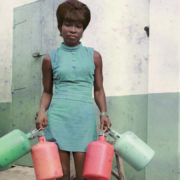Misogyny during sex, Capitalism & Sexual Repression. [@yohannaspiro]
![Misogyny during sex, Capitalism & Sexual Repression. [@yohannaspiro]](https://guap.co/wp-content/uploads/2021/02/bell-hooks-180x180.jpg)
Sexist violence is a result of misogyny and male entitlement.
Contribution by Yohanna Delaportas.
Misogyny is defined as an ‘ingrained prejudice against women’. Sexist violence is a result of misogyny and male entitlement as well as the severe hypersexualisation and objectification of female bodies, in and outside of the bedroom.
A lot of men subconsciously or consciously perpetuate ideas of misogyny, particularly during sex. Rough sex and domination for instance mask the realities of sexual violence. Sex is therefore used to undermine the severity of these situations.
Pornography highly glamourises rough sex, which is marked by gender asymmetry. It is often women that experience these forms of violence during sexual intercourse. For instance, “women are two to four times more likely than men to report having experienced strangulation”. Sex Education is minimal in the British education system and is not as informative as it should be so young people often use pornography to learn about sex. This is problematic as it is the foundation of a lot of problems that arise during intercourse.
It is detrimental and has deeply harmful effects on young people. Porn encourages sexual violence. Feminine and masculine stereotypes are portrayed during sexual intercourse and this gender inequality acts as a basis to rationalise (sexual) violence against women. Men who watch pornography are often much more likely to desire domination during sex and practice acts such as ‘choking’ or ‘gagging’.
‘The hypersexualisation of women outside of the bedroom has led to sexual disparity inside the bedroom’.
This has evidently been abused by the recurring theme of gender inequality and male entitlement. Centering sex around male pleasure is problematic. How can we shift this?I recently read Kristen R. Ghodsee’s, ‘Why women have better sex under socialism, and other arguments for economic independence’ and she argues that unregulated capitalism disproportionately affects women. Conversely, if aspects of socialism are adopted into our lives then women will live better, in all aspects. Ghodsee politicises female sexual pleasure and recognises that socialism allows for women to have economic independence from men, better work and family balance as well as better sex.
Sexual objectification is central to feminist theory. These traditional ideals go back way before capitalism, around the era of the Trojan war when Helen was kidnapped and kept as a sex slave. Sex was and is almost viewed as an activity for men, and women are used as a ‘toy’. Even after the revolution that began in the 1960s, sex was and is still understood through the models of capitalism, further perpetuating this distorted view of sex. However, the economic independence of women is a valuable good because it creates a society of equals which is understood through socialism, and further opportunities are introduced, including the sexual liberation of women.
Sex is generally empowering for all, but as a result of patriarchy and male entitlement, it will only be enjoyable for women so long as the hierarchy is dismantled. For women, this level of empowerment can only be achieved if we collectively attempt to dismantle the existing patriarchy and how it presents itself as a hierarchy during intercourse.
‘Moreover, men sexualise women in ways that make us feel physically unsafe’.
Moreover, men sexualise women in ways that make us feel physically unsafe. Black women in particular are hypersexualised and are seen as ‘promiscuous’. We are objectified by mandem, old men, fetishised by white men, or non-black men, the list goes on. The ramifications of slavery are still being felt because historically, black women have been viewed as objects of sexual exploitation.
Literature signifies instances where black male patriarchy further enforces the subjugation of black women. In bell hooks’ ‘We Real Cool; Black Men and Masculinity’, she discusses how black male patriarchy restricts the free movement of black women, and it in fact gives black men domination and control over the bodies of black women. This fulfills the needs of black men but disregards the needs of black women, viewing them as the inferior and ‘other’.
Capitalism and patriarchy both amplify the sexual oppression of women. However, patriarchy is a social construct and therefore can be deconstructed. Both ideals must be dismantled in order for women to erase the sexual pleasure disparity.
Contribution by Yohanna Delaportas.
Check out the GUAP Arts & Culture section, to discover new art, film, and creative individuals.




![ZINO VINCI’S ‘FILTHY & DISGUSTING’EP BRINGS YOU TO THE CORE OF THE ARTIST [@ZinoVinci]](https://guap.co/wp-content/uploads/2023/10/Zino-4.jpg)





![Remel London’s [@Remel_London] “Mainstream” is a must attend for upcoming presenters!](https://guap.co/wp-content/uploads/2017/02/REMEL-LONDON-FLYER-FINAL-YELLOW-COMPLETE-1.png)